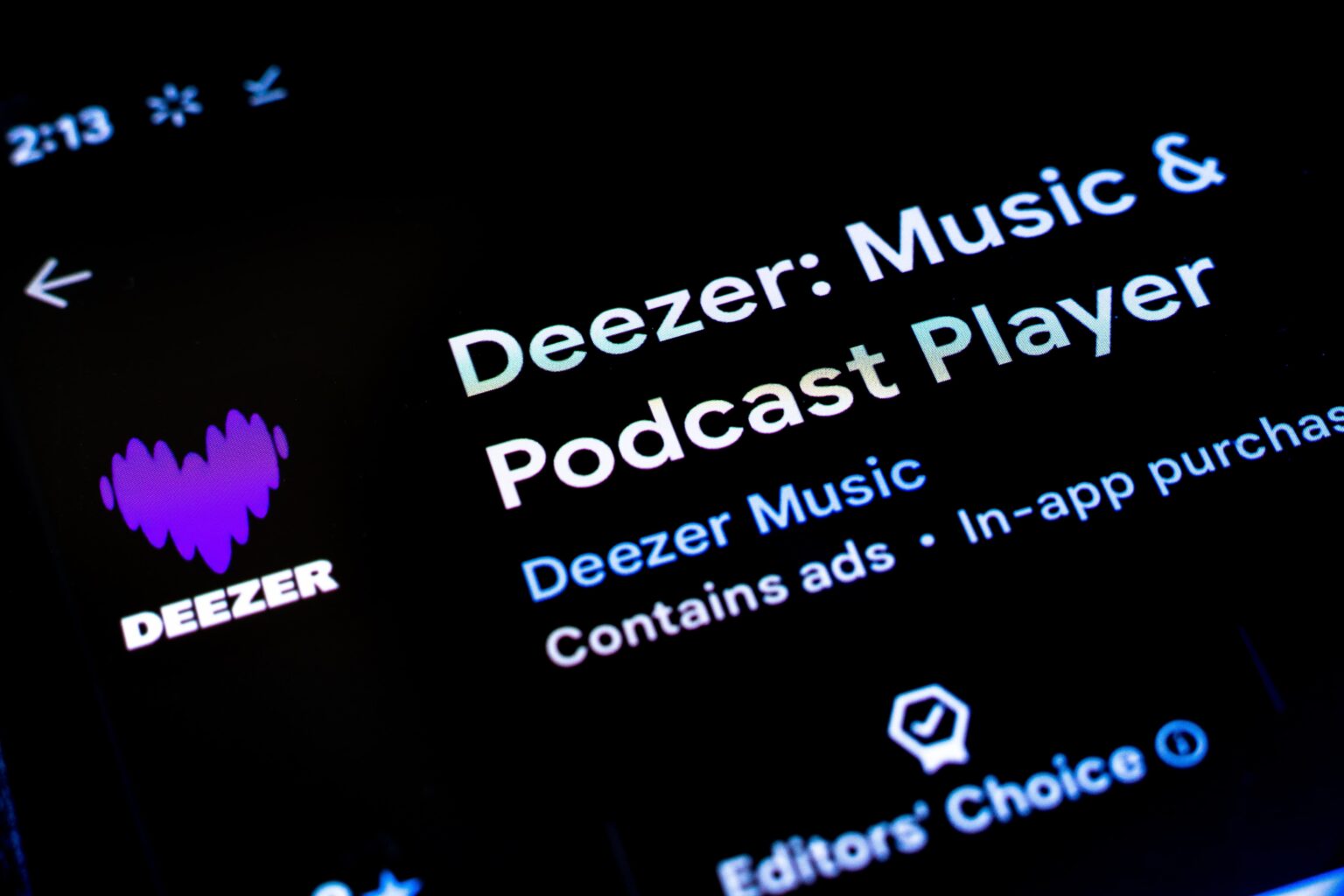Paris-based music streamer Deezer will begin tagging albums that contain songs made wholly or partly with generative AI. Listeners will see a prominent “AI-Generated Content” notice and an alert explaining that some tracks were produced by song-generator tools.
The move comes after the company detected a surge in artificially created uploads designed to siphon royalty payments. Executives argue the labels will give fans greater transparency while discouraging bad actors who upload thousands of auto-generated tracks to gaming playlists and recommendation engines.
Streaming platforms are already wrestling with a flood of synthetic audio. Deezer says AI material now accounts for about 18% of daily submissions—roughly 20,000 tracks every day—up from 10% just three months earlier. Fully AI songs still represent only 0.5% of total streams, but many are boosted by bot-driven “stream farms” that generate fake plays and inflate royalties. In some extreme cases, the company estimates that seven out of ten listens for a typical AI track come from automated accounts rather than human ears.
How Deezer’s Detection Tool Works
To spot synthetic music, Deezer uses the same publicly available generators that create AI songs. Engineers feed thousands of machine-made tracks into an in-house model, training it to recognize subtle, recurring acoustic signatures that human producers rarely mimic. Because developers of popular generators like Suno and Udio tweak their algorithms constantly, Deezer says its detection engine must be refreshed daily with new reference material—“fighting AI with AI,” as chief executive Alexis Lanternier puts it.
Once a track is flagged, the system decides between two actions. If the song is merely AI-assisted and uploaded legitimately, it earns the disclosure label but still qualifies for streaming revenue. If the track appears linked to “stream manipulation”—for example, mass uploading followed by suspicious listening spikes—it is demonetized, cutting off any royalty flow. The dual approach, the company says, balances innovation with artist protection.
Industry Reactions And Legal Pressure
Deezer may be a smaller player than giants such as Spotify, Apple Music and Amazon, yet the company insists that synthetic-song fraud is an industry-wide issue. Major labels and collecting societies are escalating their own battles. In the past month, record companies filed high-profile suits against Suno and Udio, alleging the services trained on copyrighted catalogs without permission. Germany’s rights group Gema lodged a parallel case in Munich, claiming the generators churned out works “confusingly similar” to classics like “Forever Young” and “Mambo No. 5”.
Authorities, too, are paying attention. U.S. prosecutors last year charged a man who allegedly uploaded hundreds of thousands of AI tracks and botted them billions of times, reaping at least US $10 million in fraudulent payouts. Deezer points to that indictment as proof that policing synthetic uploads is no longer optional.
Balancing Innovation, Royalties And Regulation
Generative AI undeniably expands creative possibilities: musicians can sketch a backing track in seconds or experiment with orchestral textures they could never afford to hire. Deezer says it welcomes those tools when an identifiable artist drives the process. The real challenge is preventing anonymous, high-volume generators from flooding catalogs and diluting human royalties.
Lanternier argues that transparent labeling, combined with targeted demonetization, offers a middle path while lawmakers catch up. Copyright rules crafted for the analog era rarely anticipate algorithms that can crank out convincingly original-sounding music at scale. As lawsuits wind through courts and regulators debate new guidelines, Deezer’s labeling scheme is likely to serve as a test case for whether voluntary measures can head off wider government intervention.


